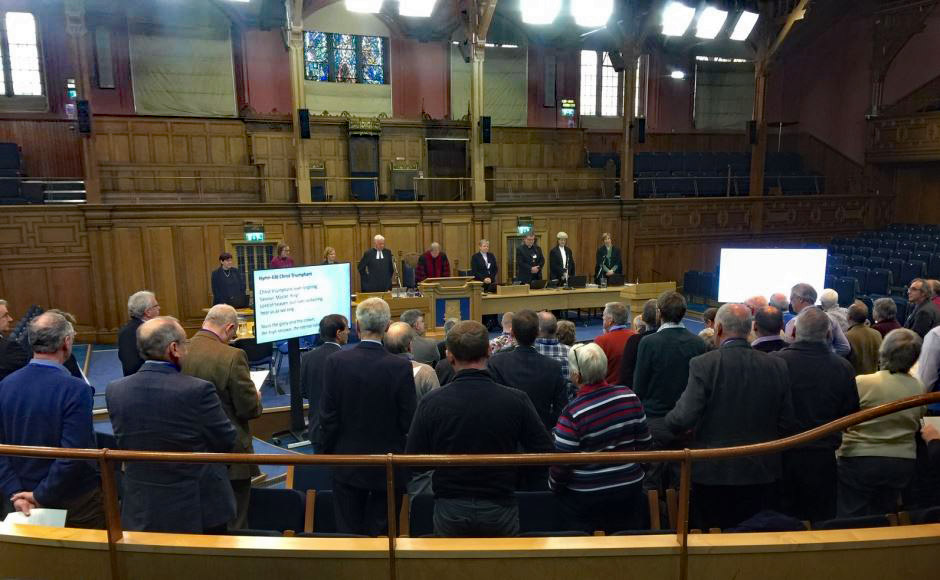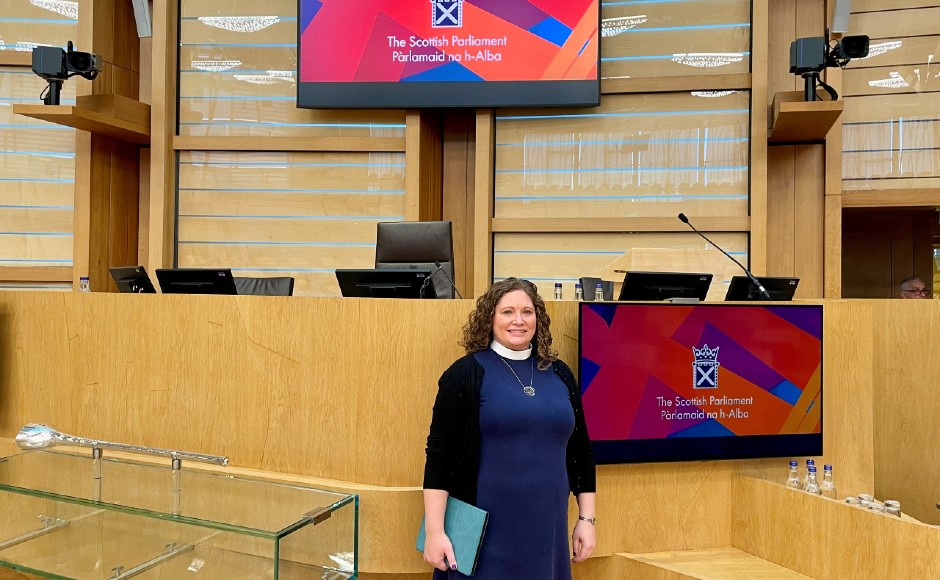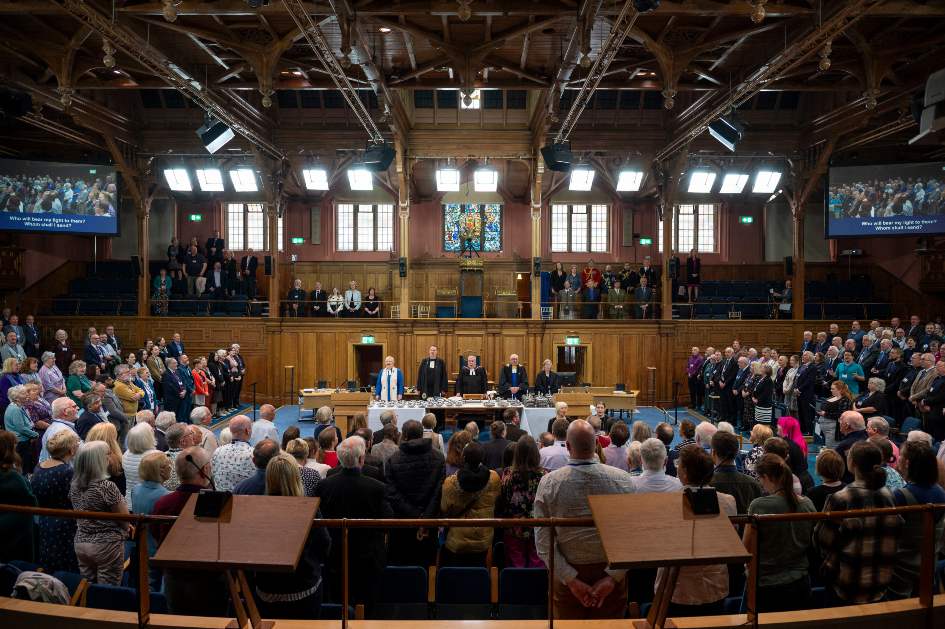Commission of Assembly takes first steps to radical change
Published on 21 November 2019
The Commission of Assembly has approved the first steps toward radical change in the Church of Scotland.

Meeting in Edinburgh on 21 November at the Assembly Hall in Edinburgh, commissioners gave their support to a report from the Assembly Trustees recommending the merger of the four central councils into two new agencies.
They are provisionally named the ‘Faith Nurture Forum' - a merger of the Ministries Council and the Mission and Discipleship Council--and the ‘Faith Impact Forum', a merger of the Church and Society Council and the World Mission Council.
The new bodies will be made up of a convener, a vice-convener and 13 members, considerably smaller than the existing councils. They will begin work on 1 January 2020.
The names of the two agencies may change, although a proposal to rename them there and then was rejected. Members of the four existing councils were thanked and discharged.
Very Rev Dr John Chalmers, convener of the Assembly Trustees, said: "We have to understand and embrace the fact that change may be the only constant.
"As we have crept closer to this first and very modest change in our structure, it has become increasingly clear that while everyone wants change; mostly, people want change on their own terms.
"Each of us has to be the change we want to see in our Church.
"And we need to adopt a new way of working – a way that is more effective, more efficient and more targeted on the growth of the local Church."
Radical change agenda
Calling on the Church to embrace cultural change, Dr Chalmers said staff should be empowered to deliver the work they were skilled to do without micromanagement.
He added that staff should take steps to work across departments as a "unified workforce supporting one another" in order to deliver the work of the General Assembly.
The first task of the new agencies will be to take a detailed look at the work currently being done and make recommendations for the future.
This will include what work should be discontinued, what should continue and what might better be devolved to Presbyteries.
The 2019 General Assembly instructed the Trustees to achieve a reduction in central administration costs of 20%-30%.
At the same time the structure of Presbyteries are undergoing reforms with the goal of reducing the number from 45 to around 12.
That work is already underway and overtures on Presbytery mergers are expected to go to the 2020 General Assembly.
Commissioners posed questions
Commissioners questioned several areas of the report including a provision that bars ministerial development staff and associate ministers, as employees, from serving on the new bodies.
In response, Dr Chalmers said that concerns about conflicts of interest in the current structure had driven the decision, an argument that was accepted.
The place of the Theological Forum, the Ecumenical Officer and the Interfaith Officer in the management structure was also discussed.
The Assembly Trustees recommend that while these committees should continue to report separately to the General Assembly, they should no longer be managed in the Principal Clerk's office.
Dr Chalmers said: "We are recommending that while the Ecumenical Relations Committee and the Theological Forum will continue to report separately to the General Assembly they should, for efficiency of administration sit within the Faith Nurture Department and that Interfaith should sit within the Faith Impact Forum, where it will also find the source of its policy direction."
He explained that the plan had been extensively discussed by the Trustees with input from each of the committees, and was the only matter which had been subject to a vote. Commissioners approved the plan.
The Commission also discussed the importance of devolving responsibilities to Presbyteries, although that work cannot be completed until Presbytery reforms are in place.
"The overall priority is that the centre must serve the local," Dr Chalmers said.
"For the first time the administration of the central agencies of the Church all fall under the management of a Chief Officer so that there will be no licence for work to be done in separate silos and at least twice a year these Forums and the Assembly Trustees, the Ecumenical Relations Committee, the Theological Forum and others who may be involved in the consolidation of our work or in the reforming of our structures will meet on the same day, sharing their work and learning from one another."
Find out more about the Commission of Assembly and the Assembly Trustees report


